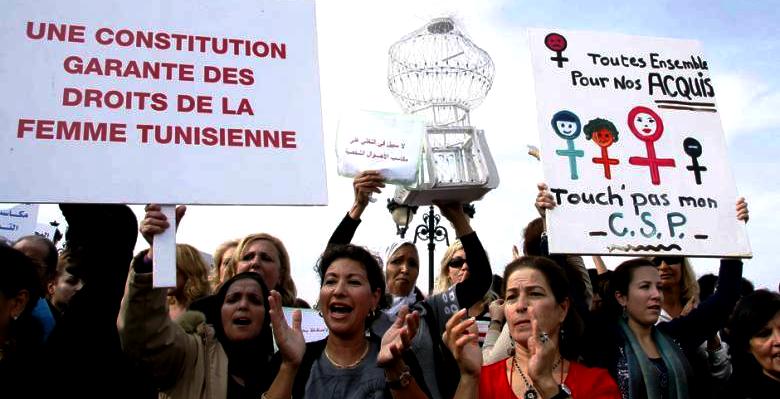Wajiha Mehdi for BeyondHeadlines
The Arab Spring that began with the self-immolation of Mohammad Bouzazi in Tunisia resulted in civil unrest and massive chain of protests in North Africa and Middle-East. Since 2011, there has been extensive intellectual debate and discussion over the civil upheaval against monarchy, human rights violation, gender discrimination, poverty, unemployment, corruption and economic decline resulting in educated yet dissatisfied youth in the Arab states.
The upheaval that began in Tunisia led to a series of protests, demonstrations and strikes against rulers and their overthrow in Tunisia, Egypt, Yemen and Libya while the war for freedom continues in other states of Middle-East.
This fight for equality, justice and freedom has been observed and scrutinized keenly by political actors and social media around the world. Since 2011, various opinions have emerged about the uprisings. There are views that the spring led to the emergence of a new-site for global politics, a new field for NATO led proxy war and a new battleground for East-West clash. This is evident from the events that took place in Syria which reflected a clear split not only in the permanent five members of the United Nations Security Council but also reinforced the tension and polarity among the states of Middle-East.
In the midst of these conflicts and turmoil in Egypt and Libya, the historic constitutional change in Tunisia is celebrated not only by its citizens and members of the National Constituent Assembly but equally appreciated by the International-community as a much awaited outcome of the Arab Spring. The western states largely views this change from an Islamist monarchy to a democratic-liberal Tunisia reflecting “yet-another” instance of triumph of “a more liberal and western concept of Human Rights.”
While there is no doubt that the new Constitution reflects a secular-progressive state but attributing the change to an acceptance of the western-ideals of Human Rights is a bit of an exaggeration. It is rightly said by the UN Secretary General, Ban Ki-moon, that the “The Tunisian example can be a model for other peoples aspiring for change,” as it surpasses the human-rights ideals of countries that proclaim themselves to be the defenders and protectors of Human Rights.
In 2011, President Barack Obama in a statement released on the events in Tunisia said, “Each nation gives life to the principle of democracy in its own way, grounded in the traditions of its own people, and those countries that respect the universal rights of their people are stronger and more successful than those that do not.…”
It is interesting to note that the ideals adopted by the Tunisian-Constitution reflects a standard that even states like United States have failed to achieve especially in the context of Gender empowerment. Whereas US Congress reflects a poor ratio of 82-17 men to women, struggles to reauthorize Violence Against Women Act and reflects a society where women are still paid less than their male counterparts for similar jobs, the Tunisian Constitution contains detailed provisions ensuring gender-equality in all aspects.
In months leading to the final Constitution, the debate around gender-discourse in Tunisia was a matter of contention. There were serious concerns and doubts about how women, who had actively participated and led protests for freedom from Ben-Ali’s regime, would be perceived in the new Tunisia and what role and status would be prescribed to them by the New Constitution.
Tunisia holds a record for upholding women’s rights in the region. 1950s witnessed a wave of “tahrir almar’a”( liberation of women), in the country. On August 13, 1956 the most important legislation enshrining provisions for equality between men and women and right of women to initiate divorce was passed and a 1993 Amendment Law gave women right to pass on their name and nationality to their children.
The 2011 election of the Constituent Assembly which required every electoral list to include 50% men and 50% women reflected hopes for a gender sensitive Constitution, however, Article 28 of the draft Constitution was a step backwards that enshrined “complimentarity” rather than “equality” among men and women. Article 28 was a major flaw in the draft Constitution of a country that has had a long history of women activism and that has remained progressive in recognizing women’s “equality” to men in the Personal Status Code dating back to 1956.
However this shortcoming was retreated and Tunisia voted to include equality among sexes in its final draft. “All male and female citizens have the same rights and duties. They are equal before the law without discrimination,” states article 20. Moreover, article 45 guarantees equal representation in Legislative Assembly and promotes steps towards protecting violence against women. The Constitution also includes “The State shall guarantee equal opportunities between men and women in the bearing of all the various responsibilities in all fields.” It also lays down that everyone, that is, men and women alike shall” “have the right to adequate working conditions and to a fair wage.”
Thus, the provision relating to women in Tunisian Constitution goes beyond rights granted to women not merely in Arab states but many Western nations. Moreover, it reflects a corrective approach of the State to withdraw deficiencies and drawbacks in the previous drafts to meet the demands of its people. Thus it is a revolutionary product of the struggle to set the country on a new path that began in 2010. Tunisians rejoice over the adoption of a Constitution that embraces the country’s religious identity and is at the same time secular progressive and all-inclusive of women’s rights. While a Constitution is the basis for rule of law and rights of the citizens, the ability of the State to guarantee these rights goes a long way in determining Tunisia’s success in ensuring gender-equality among other matters.
(Wajiha Mehdi is currently pursuing PhD in Human Rights at the Aligarh Muslim University. She was earlier elected as the Cabinet Member of AMUSU in 2011-12)









